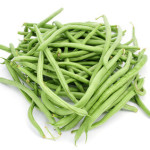 Since 2002, green vegetables like green beans from developing countries, especially in Africa, have slowly edged out meat in the EU. Healthy choices by consumers in Western countries have led to a 8 million-ton decrease in meat imports. 15 years to date, over 50 million tons of beef and lamb were under consumption in Europe. Now, this has trimmed down to about 42 million tons. Why is this good news for importers of fresh produce from Africa? Because of nutritional concerns, people now will buy anything fresh from the tropics that promises health. And fresh vegetables from East Africa are quite organic bets. Here are interesting reasons with a few statistics.
Since 2002, green vegetables like green beans from developing countries, especially in Africa, have slowly edged out meat in the EU. Healthy choices by consumers in Western countries have led to a 8 million-ton decrease in meat imports. 15 years to date, over 50 million tons of beef and lamb were under consumption in Europe. Now, this has trimmed down to about 42 million tons. Why is this good news for importers of fresh produce from Africa? Because of nutritional concerns, people now will buy anything fresh from the tropics that promises health. And fresh vegetables from East Africa are quite organic bets. Here are interesting reasons with a few statistics.
Consumption of Fresh Foods Goes Ethical
In the United Kingdom, consuming only healthy greens now accounts for at least 10 percent of all grocery buying decisions. In fact, this far outstrips tobacco ethical purchases which stand at 5 percent. This is why you can expect your fresh traditional vegetables like amaranth, dudhi and okra imports to go faster than a load of beef. They account for a large portion of what people want to eat to keep in shape.
Fresh Produce Enjoys Faster Consumption
Another reason why your consumers will seek your fresh leafy vegetables is that they know that groceries have a shelf life. This makes them to consume them with more frequency than they would do refrigerated fish or beef. Though the waste of fresh vegetables through the supply chain is more than other perishables like meat, still, smart folks buy wisely so that they can consume them at once. They also know that much nutrition is lost by distance and storage. This is why you should get your shipment of green beans, for instance, from Kenya, by air.
Distance Doesn’t Matter over Quality
Statistics about UK’s imports of green beans from Kenya show the following:
•It takes 8 hrs 45 minutes to cover the 6840km-long distance from Nairobi to London.
•If it is a nonstop flight, then your green beans will be ready for consumption in less then a day of shipping from Nairobi.
•By importing green beans from Kenya, you will be supporting about 1, 500,000 farmers and traders.
The above details show that if you can ship quality produce over a long distance, it will still arrive in top-notch quality. It will do better than locally grown French beans in France or Spain. This is because of organic and natural cultivation conditions that suit their growth in the East African highlands.
Avocado and other Fruits in Demand
Due to the concerns of quality and climate challenges, in European nations, the sourcing of fruits since 2014 has gone into the tropics. Europe increased its inbound shipments of avocados, for instance, 2.5 times in the first five years of this decade. Shipments in 2015 reached 343,000 tons. This is still rising. And the source is Kenya, Mexico and Peru, among other countries. The largest consumer markets of avocados are Spain, the UK, Germany and France.
Of the 115,000 metric tons Kenya produces annually of avocados, only a small portion goes overseas. However, you can get the best fuerte and hass varieties, notable for their high nutrition. In 2016, due to the increased acquisition of Good Agricultural Practices (GAP) permits to export companies and farmers, Kenya exported 46.7 tons of fresh dried avocados.
It is trends such as the above in the European Union that have seen major fresh produce like green beans and avocado replace meat. Now, you can try the latest seasonal produce like apricots this fall and you will never miss ready consumers in the EU. This winter you can also target fresh fruits like red plums and victoria plums, which will be in season.
Good nutrition from Selina Wamucii!

